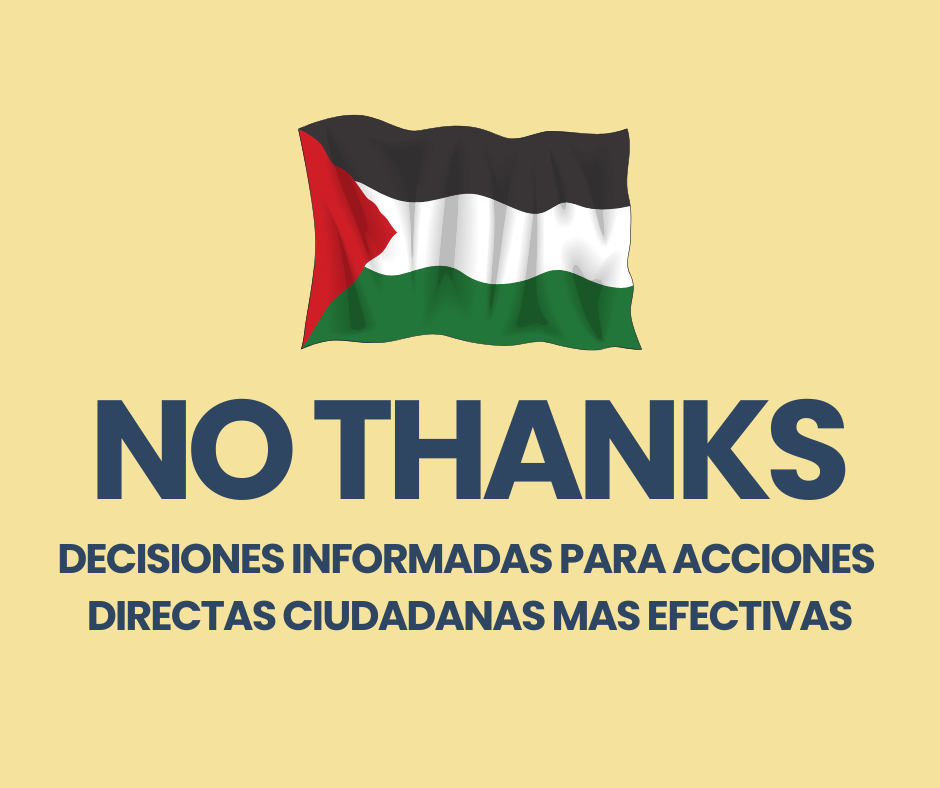
Moral boycott as a means of citizen participation through our purchases.
The informed boycott is based on the responsibility of consumer behavior. It is well known that companies adjust their behavior when economic and reputational incentives change. The sustained and collective use of NO THANKS has a positive impact on reducing sales and public exposure and leads to different management decisions in companies that have been directly linked to the genocide and forced evictions in Gaza.
It means transforming and providing citizens who decide through their consumer habits with a tool that delivers information about each purchase in verifiable language, allowing them to express support or objection to companies accused of supporting this process, which has already been declared genocide by the United Nations and the European Union by mid-2025.
Historical evidence shows that targeted, documented, and persistent boycotts help delineate responsibility and correct corporate course. If the boycott is sustained by the accumulation of small, global actions by many people, it strengthens legitimate and concrete pressure.
Gaza, Ecuador and Latin America: Continuities of Dispossession
In Ecuador and other countries in the region, pressure and, at times, violence have been used to displace communities from their homes. Under rhetoric of progress or security, concessions have been granted without adequate consultation, projects that fragment territories, militarization of everyday life, and criminalization of water and forest defenders. This pattern is recognized as a constant of dispossession.
The normalization of forced displacement in Gaza facilitates the reproduction of this script. Therefore, an ethical stance toward what is happening there is also a form of local defense. Saying "no" to profit chains linked to oppression protects our actions of internal territorial defense and promotes alternatives and transparency in markets and authorities.
NO THANKS integrates advocacy and consumer decisions that avoid providing resources to those who benefit from occupation and violence, prioritizing consistency and traceability.
NO THANKS in our shopping routines
OPERATION
Some practical ideas to get started
- Start with the most frequent categories and with identified alternatives.
- Adjust a second group of products under evaluation, comparing quality and price.
- Maintain an exceptional group, such as medications, while researching substitutes.
THIRTY-DAY ACTION PLAN
WEEK 1
Install the app.
Identify 10 common products and, if possible, replace at least five with alternatives with better traceability.
WEEK 2
Share the tool with five contacts and build a shared list of real alternatives by category.
Ask a trusted business to incorporate at least two ethical brands and place distinctive signage.
Hold a short meeting to share lessons learned and publish basic progress indicators.
Download NO THANKS and take action today
The professional approach to informed boycott that NO THANKS integrates includes verification, traceability, and active citizen participation.
NO THANKS introduces a simple method for making purchases ethical. The practice and daily use of NO THANKS, understood as a nonviolent action, is strengthened by sharing alternatives.
![]()
